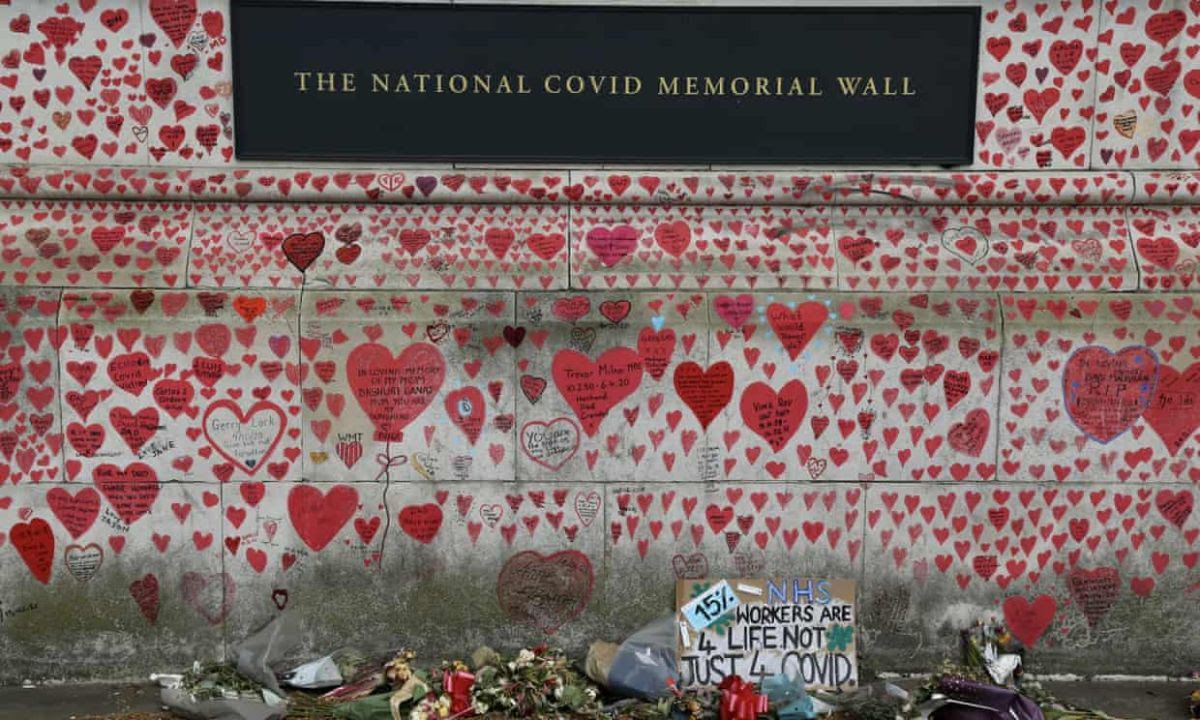I hadn't quite expected to be greeted by thousands of tiny pinks and red hearts as I strolled along London's Southbank earlier this month. The mundaneness of my day gave me a momentary respite from the headlines and, lost in a podcast, I had the strange feeling of escapism as I watched the sun bounce off the Thames. Contemplating the Londoners hurrying about their days around me, it felt, in some ways, like life moving on; there is Christmas shopping to be done, deadlines to be met, emails to send.
Yet, at the same time, it is undeniably, irreparably different. As the stretch of hearts so powerfully bring home, learning to live with the anxiety, uncertainty, and loss of the past two years, folding the memory into ourselves and attempting to carve some new semblance of 'normal', will alter how our journeys unfold into 2022 and beyond. I stayed a long time at the National COVID Memorial Wall, breathing in the aching pain of the past two years and trying to work out how I felt. Exhausted. Grieving. Overwhelmed. Tender. But, most importantly, loved. Each heart is a reminder that love has fuelled us through the darkest days of the pandemic, and will continue to do so as long as we don't lose sight of it.
2021, then, has been a year of remembrance. Collectively processing the horror of COVID whilst confronted by mutated threats, political upheaval, and intensifying racialised and gendered violence has left us questioning our place in the world. Who gets to be remembered? By whom? How are we remembered? And, what are we remembered for? The politics of memory determines not only how we know the past - such as the failure to honour Black and Asian first world war casualties or the commemoration of slave owners - but how we know ourselves and our futures. This is particularly pertinent as serving and ex-serving personnel reflect upon the aftermath of the withdrawal from Afghanistan. Many see this year's Remembrance period as particularly difficult as they grapple with doubt over what their sacrifices were for and, importantly, what makes a British veteran today. We are incredibly lucky as a community to be involved in some excellent, timely work in this field and we look forward to supporting this throughout 2022.
As we enter this Christmas period, I urge you to be kind, to give yourself the space to rest, and be grateful for the love that you give and receive.
Have a very Merry Christmas,
The DRN Team
See the full newsletter here: Remembrance
Visit the Newsletter Catalogue to catch up on all our past issues!

